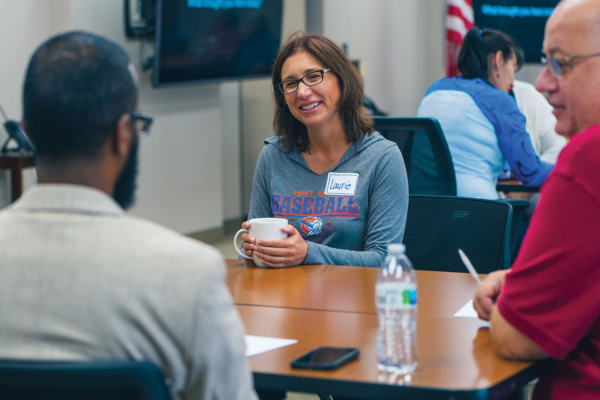Our Students Push Real Change for Racial Fairness
March 01, 2021
For some time, leadership in Guilford, Conn., Public Schools has been internally discussing issues of racial justice, culturally responsive instruction and a Native American high school mascot. Last May, following the killing of George Floyd, the board of education and I began receiving communication from students and recent graduates sharing two kinds of poignant stories.

First, students were surprised that the Native American-themed spirit wear from their hometown high school was not well received in settings outside Guilford. They were surprised at the offense others took from the mascot and the Indians nickname. One young graduate, an All-American lacrosse player before coaching Denmark’s national women’s team, wrote eloquently about the guilt she felt associated with her high school mascot while attending the sport’s 2017 World Cup in Guildford, England.
Second, graduates in diverse settings have found themselves unprepared to engage in conversations about race, privilege and even history when expected to do so with an open mind and a critical lens. One graduate, who went on to teach in Japan, Belgium and Bulgaria, wrote that her own schooling failed to prepare her to participate in discussions of racial justice and that as a teacher she now recognized a lack of culturally responsive instruction during her time as a student in Guilford.
Avoiding Excuses
Unaware of our internal work, many of those communications carried a series of straightforward demands: discontinue the Indian mascot, audit our curricula for implicit biases, diversify our teacher work force and provide teacher training in culturally responsive instructional practices. Most significantly, they demanded that we not allow the unfolding pandemic to become an excuse to avoid public action addressing race, equity and justice.
Novice as we are in this work, we now know we have a mandate from our community and specifically from our students and recent graduates. But while they call upon us to act and do it transparently, we know it makes some in our community uncomfortable.
A high school sophomore told me of challenges she has faced from classmates and others while advocating for a change of mascot and for more texts from diverse authors in our curricula.
As superintendent, the opportunity to network with similarly situated leaders has allowed me to question my own role in this work, leading to revelations I would otherwise have missed. Unformed thoughts at the back of my mind — about balancing the impatience of some against the discomfort of others and about coming to this conversation as a predominantly white community — have been pushed forward, helping me better focus and better frame questions essential to our conversation.
Change Afoot
Our board last June dropped the Indians nickname, and in December our students voted to adopt Grizzlies as a replacement. We have begun the work of teacher training and curricular audits. We will continue to wrestle, stumble and grow from this conversation,
and we are excited to learn from neighboring communities doing the same.
PAUL FREEMAN is superintendent of Guilford Public Schools in Guilford, Conn.
Advertisement
Advertisement
Advertisement
Advertisement



